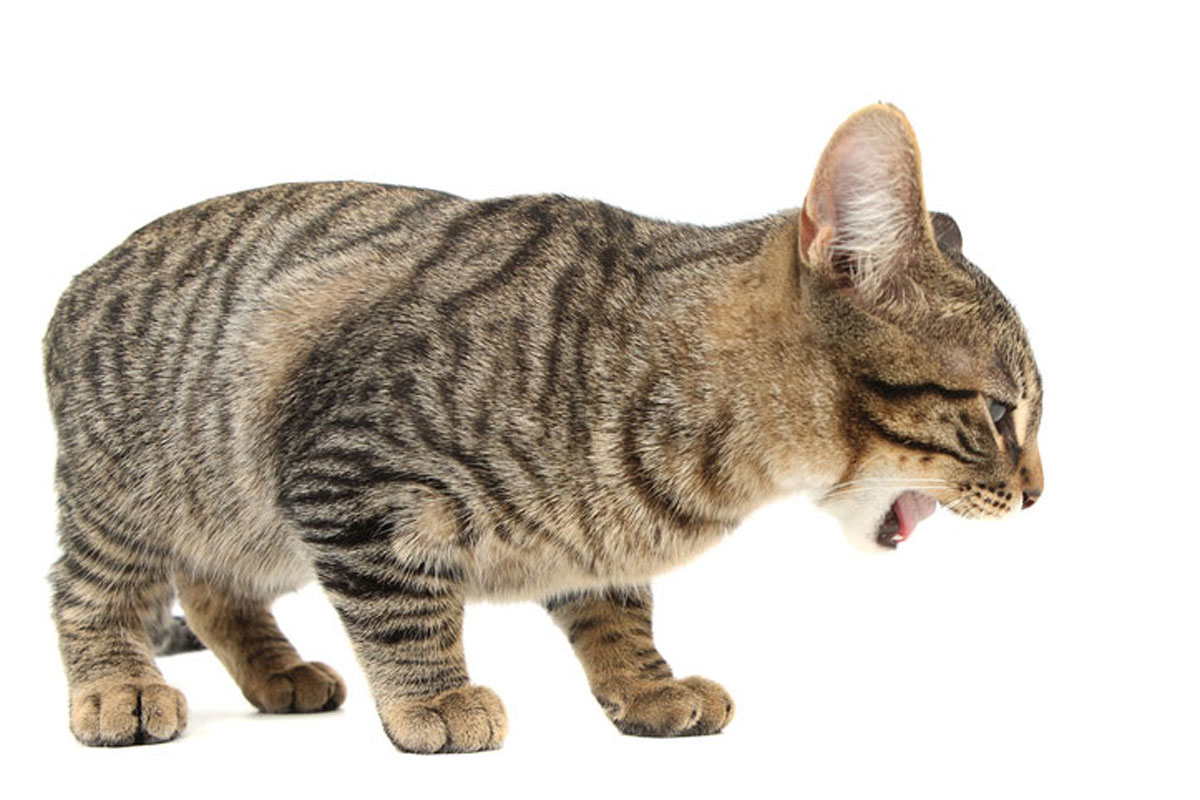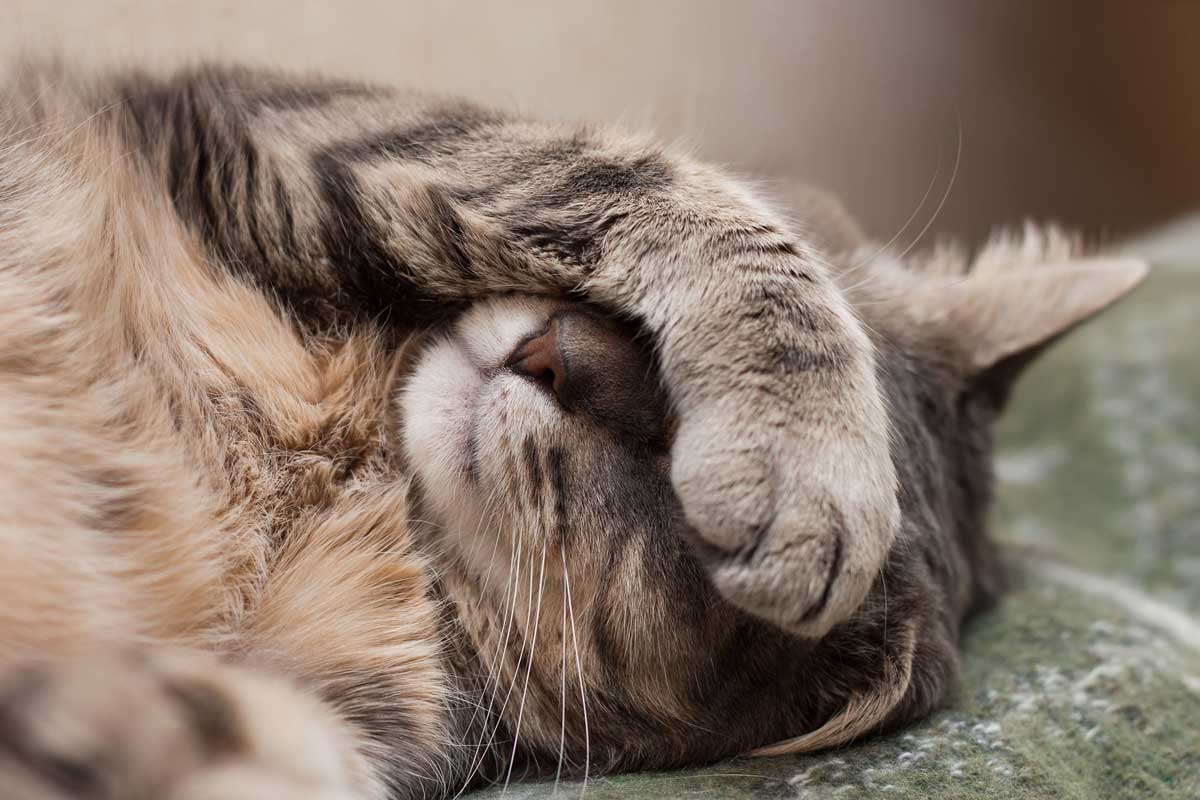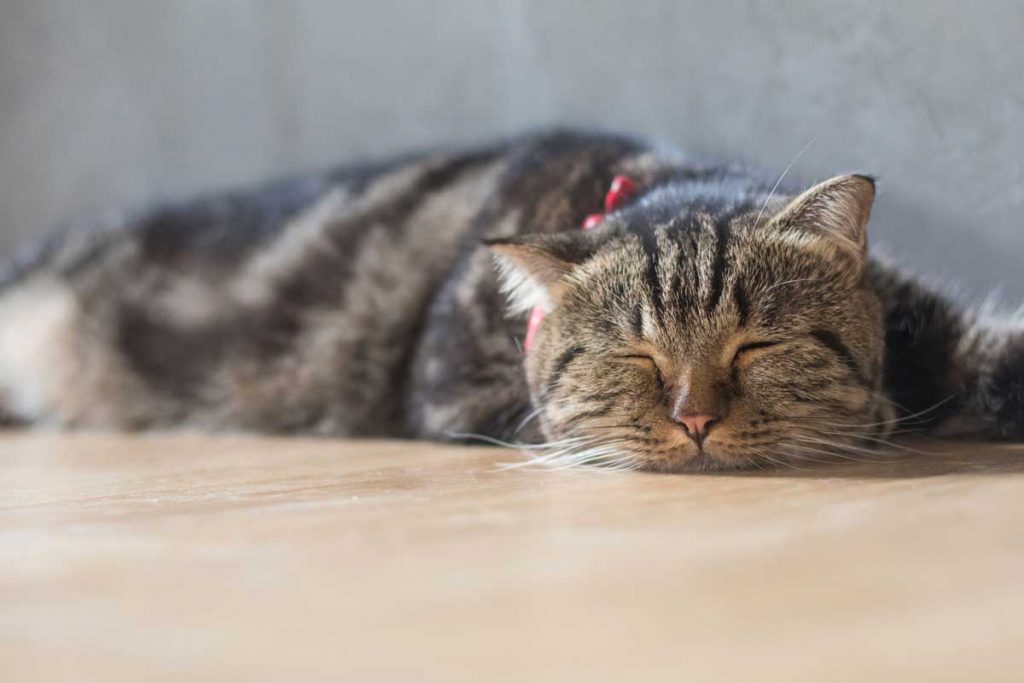No products in the cart.
Cat Health, Digestive Issues In Pets
Tummy trouble?
Common causes and treatments for digestive disturbances in cats.
Do you find your cat often regurgitates her dinner shortly after feeding? Or perhaps she sometimes suffers from a sudden bout of diarrhea, that you just can’t quite get to the bottom of (if you’ll excuse the pun!)? Or maybe she loses her appetite occasionally, no matter how much you tempt her with her favorite food? If you have experienced any of the above issues with your cat, you’re not alone. Just like us humans, dogs, cats, rabbits and even our avian friends can suffer from many different types of digestive disorders, some of which disappear as mysteriously as they appear! In this article, Tom Farrington MVB MRCVS VetMFHom – Chief Veterinary Medical Advisor for HomeoPet – discusses digestive issues in cats. Generally grouped into acute (severe and often sudden onset) or chronic (persisting for a long time or constantly recurring) causes, tummy troubles can have many causes and a variety of effective, natural treatments.
Common causes of acute digestive disorders in cats
Dietary indiscretion – the most common cause of sudden onset, acute tummy trouble, is simply your cat having eaten something he or she shouldn’t have. Maybe she helped herself to the left overs from last night’s dinner, or decided to nibble on that exotic plant your friend gave you? Due to the absence of certain chemical pathways cats cannot process many compounds effectively, right down to common or garden Asprin. And too much rich food rarely agrees with a cat’s tummy… so vomiting and diarrhea may ensue in either case.
Incorrect diet – while flatulence and bad breath (technically called Halitosis) is more common in our canine rather than feline friends, incorrect diet can lead to a gassy tummy and a less than pleasant aroma emerging from either end! Often related to cereal and sugars in a diet but with many other causes, flatulence is generally much less common in cats fed fresh meat. While bad breath is often associated with an inappropriate diet, it can also be associated with more serious problems such as kidney disease or less serious ones such as teething. If you do find yourself avoiding snuggle time with your cat because of a less than pleasant pong, first try changing his or her diet. Both flatulence and bad breath can commonly be helped by feeding some uncooked chicken wing (which can be blanched in boiling water to sterilize it, but not cooked so the meat does not slip off bone) and then chop it into manageable pieces. Your cat can then use this as a natural tooth brush and for soothing teething pains.
Parasites – Intestinal parasites can cause many issues, including vomiting and diarrhea and are typically transmitted when your cat eats rodents or other infected prey. Giardia is such a problem which is on the rise where cats pick it up from the feces of other cats when burying theirs in the same litter tray.
Viruses – many different strains of virus can cause digestive upset in cats, some of which (such as Feline Enteritis) are highly contagious and can be life-threatening.
Bacteria – can be ingested through contaminated food or water, transmitted from other animals or may even be passed on from animal to human.
Pancreatitis – inflammation of the pancreas can disrupt the flow of enzymes into the digestive tract, forcing the enzymes out of the pancreas and into the abdominal area and which will, in effect, cause the body to begin digesting itself. Pancreatitis can be caused by an inflamed digestive gland, by medications, or consuming something that’s difficult for the pancreas to handle, such as a meal high in fat or even high sugar stresses in the liver. A simple, low fat diet of chicken breast with the skin removed can help relieve stress on the liver and should be accompanied by plenty of water. A great option is to pour boiling water over the chicken breasts and allow them to cool, giving your cat a tasty, nourishing, hydrating meal. Homeopet Digestive Upset can help support the pancreas. Supplementing with digestive enzymes can similarly help despite research papers suggesting this may not helpful I have seen many patients benefit and continue to benefit despite the research papers, but each cat must be treated as an individual. The pancreas often has to neutralize the contents of the stomach before it moves into the small intestine and if there is too much work in doing this, inflammation can result, in my experience particularly in the absence of good hydration.
Hair Balls (Furballs) – all cats (including Puss In Boots!) occasionally suffer from hairballs. They occur as a result of your cat grooming his or herself and in the process swallowing hair. Normally, the cat’s digestive system is able to handle the hair and it simply passes through the intestinal tract and out in the feces, but here again, the ingredients in Homeopet Digestive Upsets can help a smooth journey. However, there are some instances when furballs get very large and may need veterinary intervention.

Common causes of chronic digestive disorders in cats
Food allergies – I find food allergies are now very common in cats as there are so many additions now to modern diets. If you think your cat is affected, try going back to a simple, natural meat diet and sticking to one protein source (such as chicken or fish) until you see an improvement. Food allergies are a particularly common cause of regurgitation, where your cat may throw up 20 minutes or even immediately after eating, or a cause of your cat putting off eating for as long as possible as she knows the food is going to make her nauseous. Always remember that if your first diet change is to a food to which your cat is allergic, the symptoms will get worse and you know straight off what to eliminate.
Inflammatory bowel disease (IBD) – like in humans, IBD in cats is where the animal suffers from chronic inflammation of the gut wall and normal tissue may be replaced by fibrous (scar-like) tissue.
Hemorrhagic gastritis – caused by infectious agents such as bacteria, viruses, fungi and parasites, or as a result of a bad reaction to certain medications, hemorrhagic gastritis induces profuse vomiting and bloody diarrhea.
Worms can be a cause of both chronic and acute digestive problems and can cause a range of digestive problems, including vomiting and diarrhea. HomeoPet Wrm Clear is a great natural option, even when combined with a conventional wormer. Wrm Clear can help to reduce the digestive upset associated with some of the stronger wormers and for extra natural support, HomeoPet Liver Rescue helps remove unwanted environmental toxins from organs, which accompany a heavy worm burden.
Treatment of upset tummy in cats
Unfortunately, diarrhea generally has to run its course. However, if your cat is suffering, it’s important to act quickly to help prevent issues from worsening and to consult with your veterinarian on how to treat the signs and underlying cause. If your cat begins vomiting at any point, consult your veterinarian immediately.
However, if your cat is suffering from a simple upset tummy, there are several steps you should take:
First let your cat tell you what it needs. Just like us, some cats will want to eat and others will want to starve themselves, so follow your cat’s instinct while keeping an eye for signs that he or she is not coping (such as dehydration where the skin loses its ability to bounce back, weakness or any other symptoms that might seem serious). Your cat may seek warmth and although not common, she may seek cold. Always be careful, however, if a collapsed cat seeks heat or cold as they may not be able to regulate their temperature and in such circumstances, consult your veterinarian.
Provide plenty of fresh water at all times to keep them hydrated. Diarrhea will cause your cat to lose extra fluid, so this is a crucial step.
Take a close look at your cat’s diet. Have you introduced something new that may not be agreeing with him or her? If there’s nothing new, change to a bland diet such as fresh meat, boiled chicken and possibly some rice or a therapeutic cat food formulated for Gastro Intestinal problems for three to five days, (the therapeutic diet can often be obtained at your veterinarian’s office or at pet supply stores).
Gradually introduce an ever-increasing amount of your cat’s previous food over a period of three to five days (or based on the instructions of your veterinarian) until he or she is back on his or her “regular” diet. If your cat’s tummy troubles resurface, you may need to put her on a therapeutic pet food on a more permanent basis.
Natural Medicines for Digestive Upsets in Cats
HomeoPet Feline Digestive Upsets is a great, natural remedy that will help to alleviate your cat’s tummy troubles. This natural pet medicine provides relief from minor digestive problems including vomiting, diarrhea, constipation, loss of appetite, bad breath and repeated gas. Digestive Upsets is also extremely effective for cats that throw up 20 minutes after eating. Homeopet Digestive Upsets works on many levels to help reduce the causes of nausea, vomiting, diarrhea, constipation, loss of appetite, flatulence, bloating and other irritable bowel-like symptoms, providing relief in a natural way, in harmony with your cat’s digestive system. Homeopet Digestive Upsets is effective for both acute or chronic causes of tummy upset. Simply alter the frequency and volume of dosage according to the medicine’s instructions, the size of your cat and the nature of the symptoms.
HomeoPet Liver Detox (Kidney) a natural medicine for the removal of unwanted environmental toxins from organs, Liver Rescue improves energy, overall health and wellbeing and can also help with bad breath where the liver is stressed or there is bad breath or jaundice accompanying the digestive upsets. It should be noted that remedies for the liver often also help the kidney such as Bereris Vulgaris 4x, Solidago Viragurea ,Taraxacum, Lycopodium Sulphur and Equisetum thus it is a Detox and Organ Support across the system not just the Liver. Over the years I have seen this medicine do so much good on its own or in conjunction with conventional medicine. Due to the dilute nature of the ingredients, Liver Rescue is perfectly safe and does not stress organs that are already ill. Your cat’s system does not have to breakdown yet another medicine, which is the case with so many treatments other than homeopathy, acupuncture, acupressure and similar healing modalities. If you would like any further information on Digestive Upsets Or Liver Detox (Kidney) or to discuss your cat’s tummy troubles, please contact our Customer Care Line Staff – we’re here to help.






